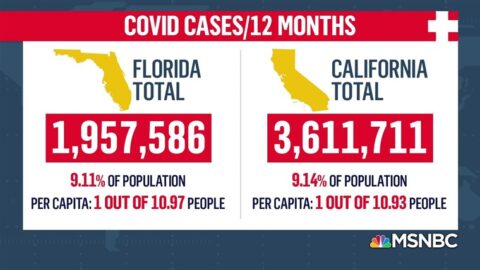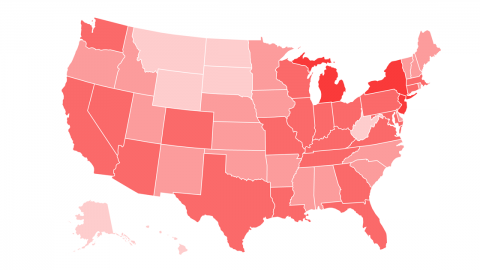Exposure to leaded gasoline lowered the IQ of about half the population of the United States, a new study estimates.
The peer-reviewed study, published Monday in the journal Proceedings of the National Academy of Sciences, focuses on people born before 1996 — the year the U.S. banned gas containing lead.
Overall, the researchers from Florida State University and Duke University found, childhood lead exposure cost America an estimated 824 million points, or 2.6 points per person on average.
Certain cohorts were more affected than others. For people born in the 1960s and the 1970s, when leaded gas consumption was skyrocketing, the IQ loss was estimated to be up to 6 points and for some, more than 7 points. Exposure to it came primarily from inhaling auto exhaust.
The team behind the study used gas consumption data, population estimates and other data to calculate that as of 2015, more than 170 million Americans had had blood lead levels above 5 micrograms per deciliter in their early childhood years.
Lead is a neurotoxin, and no amount of it is safe. Currently, 3.5 micrograms per deciliter is the reference value for blood lead levels to be considered high; the acceptable amount was once higher.
Principal study author Michael McFarland, an associate professor of sociology at Florida State University and a faculty member of the university’s Center for Demography and Population Health, called the number of people affected by lead exposure “staggering.”
“This is important because we often think about lead as an issue for children, and of course it is,” he said. “But what we really wanted to know is what happens to those children who were exposed?”
In many cases, McFarland said, a 2 to 3 point IQ difference is nominal, unless an individual is on the lower side of IQ distribution.
“If you’re more toward cognitive impairment, a couple points can mean a lot,” he said.
But on a population basis, shifting the average IQ down even a small amount could have large consequences, said Sung Kyun Park, an associate professor of epidemiology and environmental health sciences at the University of Michigan School of Public Health. The entire bell curve shifts, he explained, with more of the population at what was once the extreme low end of IQ scores.
Lead used to be added to gasoline to help engines run more smoothly until other, safer additives replaced it. In addition to being linked to lower IQs, it has also been associated with heart and kidney disease.
Lead can be inhaled or ingested, with children particularly susceptible to its poisonous effects. Children’s blood lead levels have been dramatically lowered in the U.S. in recent decades, but lead exposure still happens, and Black children are exposed more often than white children. Monday’s study, too, estimated that most Black adults under age 45 experienced “considerably higher” levels of blood lead levels in early life than their white counterparts.
The racial disparities are generally due to environmental contamination and infrastructure issues that affect drinking water in low-income and minority neighborhoods, with the water crisis in Flint, Michigan, one of the most egregious examples in recent years.
And while children are the most vulnerable to getting very ill from lead, the toxin’s damage can show up years later, Park said. Lead exposure is believed to put people at risk for chronic and age-related diseases, including cardiovascular disease and dementia.
“Lead is a never-ending story,” he said.
There are medical interventions available for children who have recently been exposed to high amounts of lead, but those wouldn’t work for adults born before 1996. Still, the study findings should not be a major cause for concern, McFarland said.
“There are a host of things that go into IQ,” he said. “This is one that is obviously negative, but if you also have a nurturing home environment, that helped your IQ.”










Recent Comments